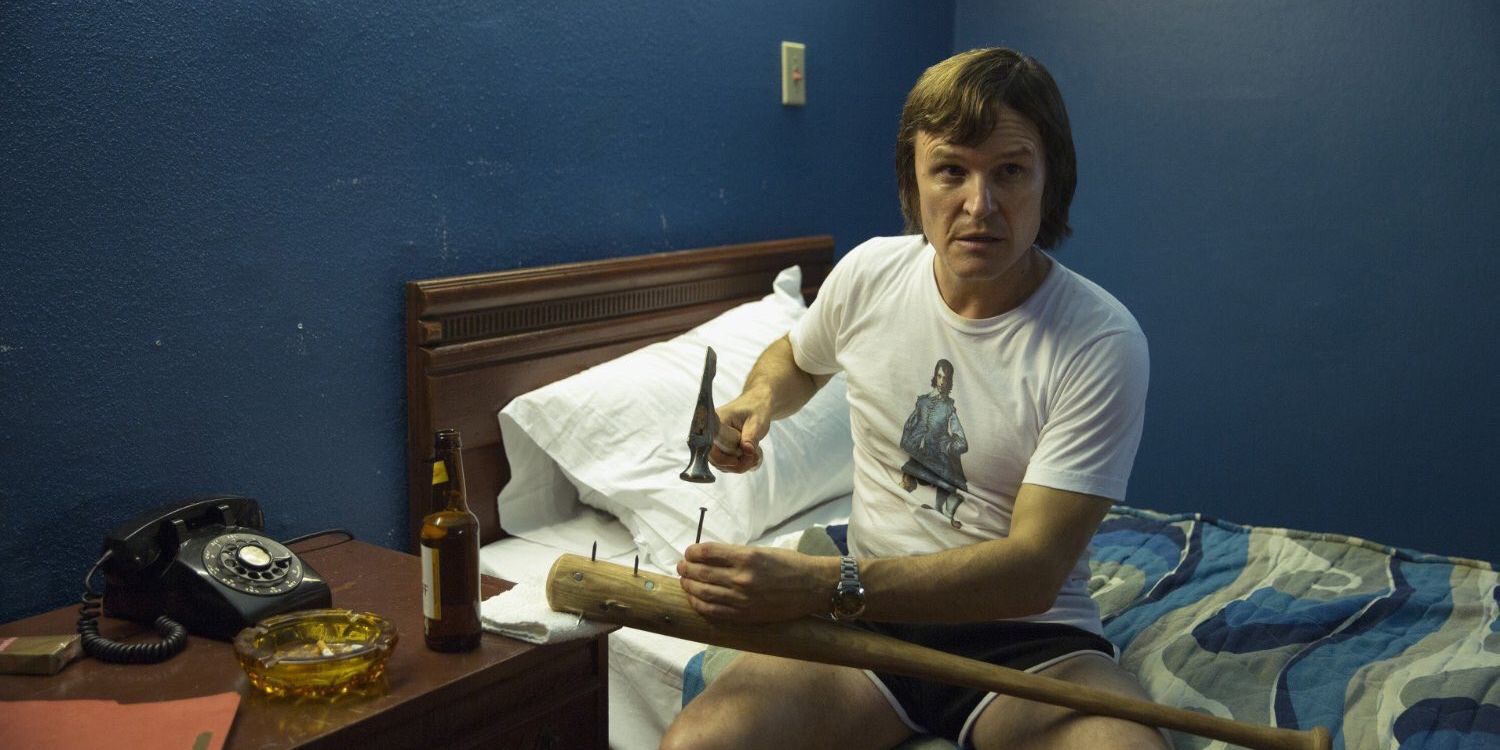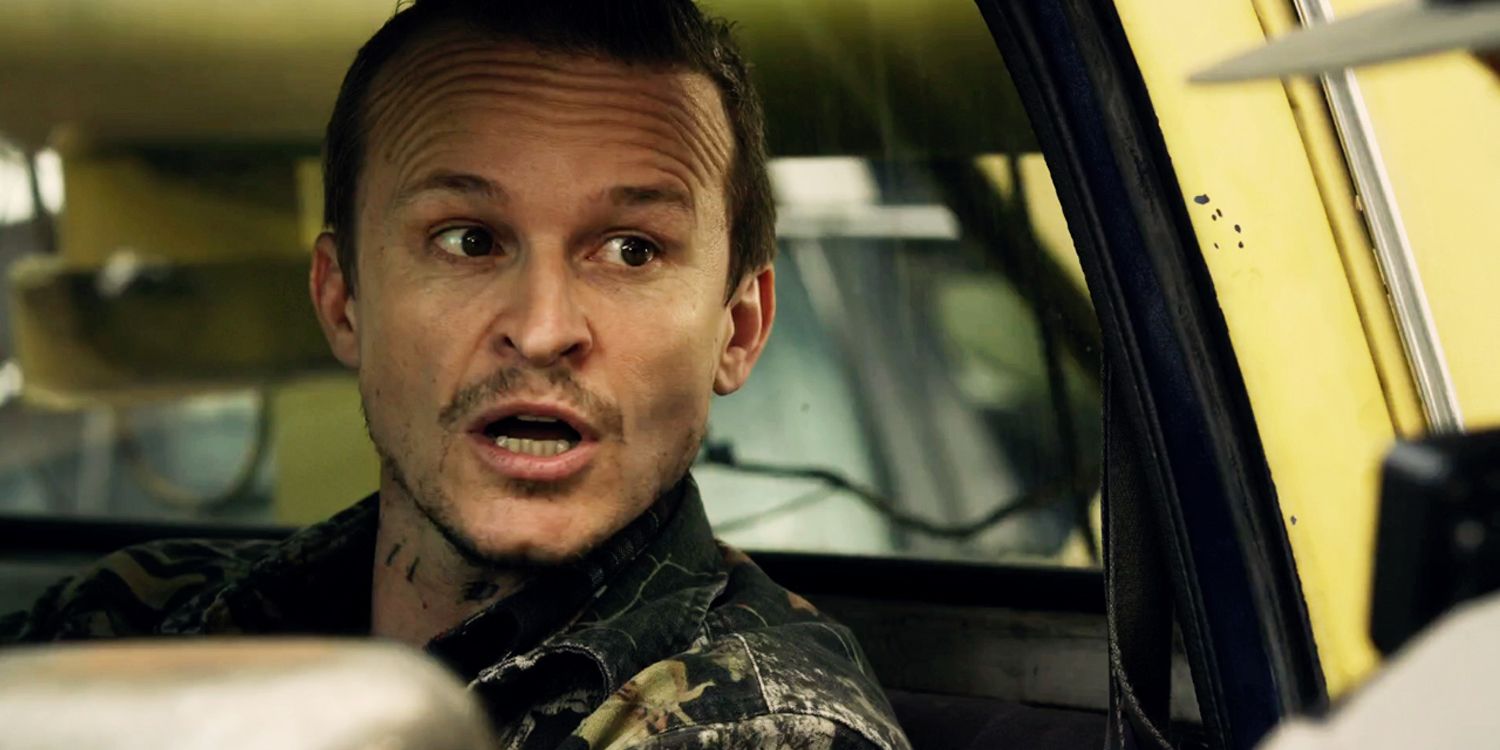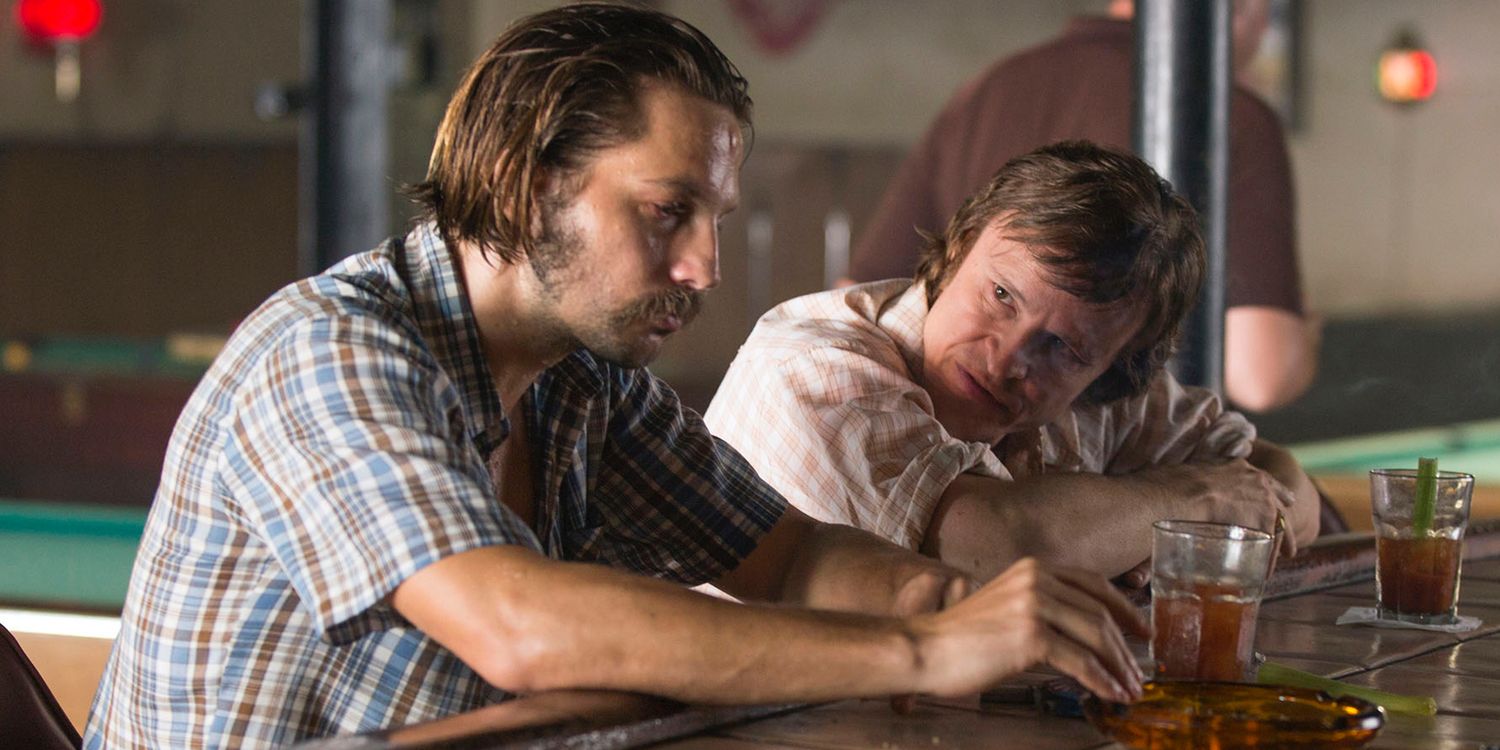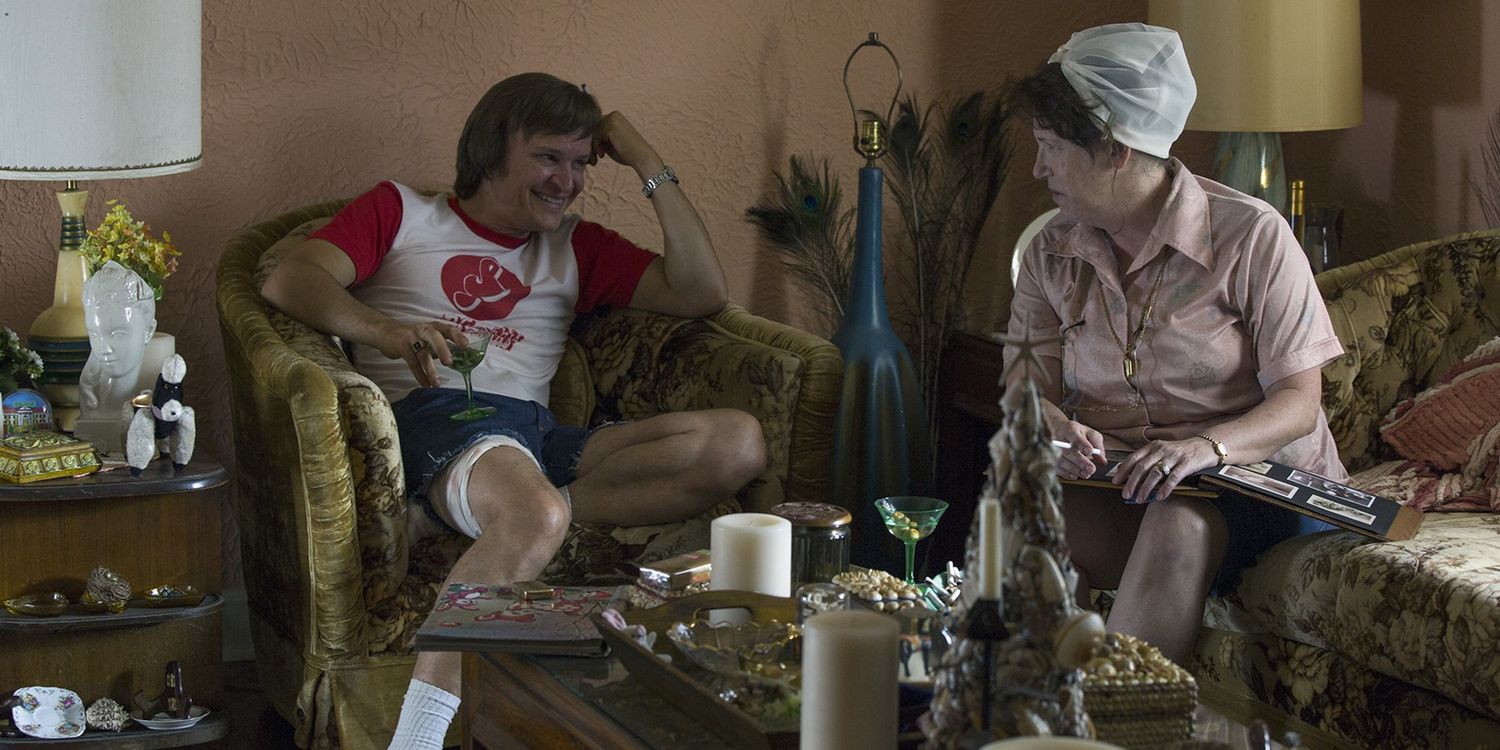Cinemax's wonderfully pulpy new crime drama Quarry is a little over halfway through its first season telling the story of Mac Conway and his descent into a strange criminal organization that kills people for money. A period drama adapted from the novels by Max Allan Collins, the series transports viewers to Memphis in 1972, where the Vietnam War is still a fresh wound for many an American. It certainly is for the series' main character and, tangentially, for the various colorful characters he is introduced to in his journey through the criminal underworld.
Well known for their work on the beautifully languorous and existential drama Rectify, creators and writers Michael D. Fuller and Graham Gordy have infused the drama and violence of Collins' novels with plenty of deeply introspective character moments that result in a series capable of moving beyond its pulpy roots when necessary. One of the ways Quarry achieves this is through a remarkable sense of specificity, making its period elements more than just background; they feed directly into the essence of the characters.
Early on, the series introduces Buddy, a standout character and a hardened criminal who is in league with the shadowy organization that conscripts Mac into service. A plumb role from the get-go, Buddy becomes something else entirely thanks to a bravura performance from the man playing him, Damon Herriman. A veteran of film and TV, Herriman has appeared in everything from The Lone Ranger to Almost Human and even Breaking Bad, but he's likely best known for his role as the dimwitted good ol' boy Dewey Crowe on FX's Justified.
Screen Rant had the chance to speak with Herriman recently about Quarry, and his role as Buddy. Herriman discussed the various elements that make the character work, and how, although he's a killer, Buddy proves to be more interesting, and refuses to be defined by his profession. For one thing, Buddy, a gay man living in the South in the early '70s, is an emotionally intelligent and competent individual for whom the profession of taking lives has begun to take a toll. And for those who are caught up on the series, Buddy's arc takes an interesting turn, revealing a fascinating relationship with his mother, played by Ann Dowd of The Leftovers.
"It doesn't feel like any character I've read before. The things he says and does and the way he lives his life -- it's a very unusual mix of qualities in one man. And he's quite complex. He's suffering... he's a gay man in 1972 in the South and he's actually incredibly comfortable with that aspect of his life. He's more kind of troubled by the fact that his job is to kill people for money. He's kind of... as the series goes on we realize that he's really struggling with that aspect of his life.
Before we started shooting I talked with the writers and [director] Greg Yaitanes in quite a bit of detail about how Buddy should be played and how he presented himself and what kind of guy he was. It was important that Buddy was a guy that's incredibly comfortable in his own skin. There were different aspects to him. He kind of chooses various sides of himself depending on the situation. When he's out on a job he's kind of playing the tough-guy version of himself. When he's having a drink with a friend or a colleague who knows him, we see a little bit more into who the real guy is. And then when he's at home with his mom, his relationship with her is the most relaxed and the most real. It's kind of interesting from episode 3 on where you see Buddy interacting with his mom. The guy that we've seen being an incredibly masculine kind of tough guy is almost like a little boy in his relationship with his mother. So it's quite a different version of the guy that we've come to know up to that point."
Playing Buddy is a return for Herriman in more ways than one. For U.S. audiences, the actor has been seen recently in dramas like CBS's Scorpion and Starz's Flesh and Bone, but Quarry brings him back to a southern criminal underworld that's somewhat reminiscent of his time as the aforementioned Dewey Crowe. Harriman's well aware the similarities in genre and setting, but as he puts it, the characters of Dewey and Buddy require a different approach, even though the aim is to try and infuse two men at odds with the law with a certain kind of humanity.
"Buddy is the first since Justified that I've played someone from the South, but [he's] a very different guy. Dewey would like to think that he's a tough guy and would like to think that he's intimidating, but Buddy genuinely is those two things. And in addition to that, I would say Buddy has a considerably higher IQ level than Dewey, so that definitely sets them apart.
I guess you just hope that with whatever character you're playing their humanity shows through. And I think on the surface you can just see Dewey for example as a hapless dumb redneck, but then you would see moments… where you would get to see him being vulnerable or upset and where you would actually see him facing a crisis of some kind, and that I think does help with making the character more relatable. But you hope that the combination of the character that's written on the page and what you try to bring to it will create a character that is relatable so that [the audience] can see themselves in there somewhere, even if it is Dewey Crow -- just hopefully not too much of themselves."
What viewers will see in season 1, however, is an arc for Buddy that explores the character outside the boundaries of his bloody vocation and to see him question the choices he's made in his life, whether they are of a personal or professional nature.
"In general terms we do get to see Buddy becoming a little more introspective perhaps than he appears when we first meet him. We get to know him initially as a kind of a light, funny character in a dark, gritty world. As the series goes on, we get to explore other relationships that he has. His relationship with his mother played by the extraordinary Ann Dowd and working with her was just a pure joy. We get a little hint of his potential romantic relationships that he's had in the past."
That glimpse into the life of a killer, the opportunity to see where his romantic interests lie and how it makes a person like Buddy feel even more vulnerable than when he's being shot at, is an important aspect to how Herriman is able to deliver such an engaging performance. Add those fascinating layers to the flashes of introspection seen in Buddy in episode 3 on, and you begin to understand how Herriman is able to make the audience feel empathy for a man who does what Buddy does.
"I think it's always preferable -- even if they are incredibly violent -- to see the person behind those decisions and how they justify making those decisions rather than a cardboard cutout version of a villain. That's not to say you want to in anyway condone the behavior, there's plenty of behavior that Buddy gets up to... he gets involved in some pretty heinous violent stuff that I wouldn't condone for a second. But when you're playing the character, it is important to try and make that character as believable as possible and make the decisions that they're making at least justifiable to them."
From Justified to Flesh and Bone to the under appreciated Son of a Gun and now Quarry, Herriman has a knack for turning men on the wrong side of the law into fascinating characters who often find themselves stealing the spotlight. Given how memorable his performances have been, perhaps that's behavior worth condoning.
-
Quarry season 1 continues with 'Coffee Blues' @9pm on Cinemax.




